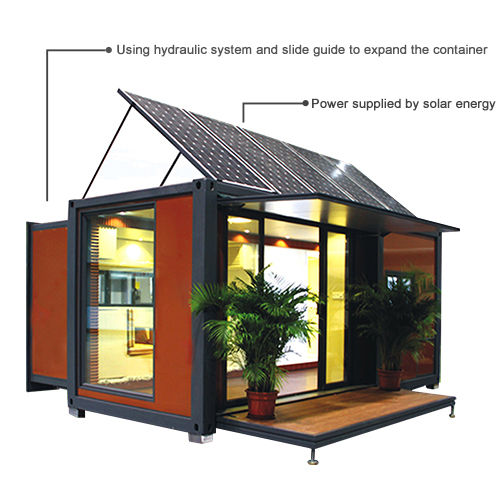Are Expandable Container Houses Worth It?
Expandable container houses have gained significant attention in recent years as a modern, affordable, and sustainable housing solution. But are they truly worth it? Let's explore the benefits, considerations, and potential drawbacks of expandable container houses to help answer that question.

One of the key advantages of expandable container homes is their cost-effectiveness. Compared to traditional construction methods, these houses are often more affordable. The use of repurposed shipping containers as the base structure significantly reduces the material and labor costs. Additionally, their modular and expandable nature allows for scalability and customization according to individual needs and budget. This affordability makes expandable container houses an attractive option for those looking for cost-efficient housing solutions.
Another notable benefit is the sustainability factor. By repurposing shipping containers, these houses contribute to reducing waste and environmental impact. Additionally, the use of eco-friendly materials and the potential for incorporating renewable energy systems make expandable container houses a more sustainable housing option. This appeals to individuals seeking environmentally conscious living solutions.
The versatility and flexibility of prefabricated houses are also worth considering. The modular design allows for easy expansion or contraction of living space based on changing needs. Whether it's adding extra rooms or creating multi-level structures, the adaptability of expandable container houses offers homeowners the freedom to adjust their living spaces as required. This flexibility is particularly appealing for individuals who value versatility and the ability to customize their homes.
Furthermore, expandable container houses can offer a faster construction process compared to traditional homes. Since the core structure of the house is already in place with the shipping containers, the construction time is typically shorter. This is advantageous for those who require quick housing solutions or are seeking to minimize the disruption caused by lengthy construction processes.
However, there are some considerations and potential drawbacks to be aware of. The limited space within shipping containers may pose a challenge for those accustomed to larger living areas. Careful planning and interior design optimization are necessary to maximize the available space and ensure functionality and comfort. Additionally, insulation and climate control can be challenging in container homes. Proper insulation and ventilation systems are crucial to regulate temperature and prevent condensation or humidity-related issues.
Another consideration is the availability of suitable land for setting up expandable houses. Zoning regulations and building codes can vary, and it is essential to research and comply with local requirements before embarking on such a project. Additionally, access to utilities such as water, electricity, and sewage may need to be established or modified to accommodate the container house.
It is also worth noting that while expandable container houses offer an affordable and sustainable housing option, they may not necessarily appreciate in value at the same rate as traditional homes. Resale value and market acceptance of container houses can vary based on location and market trends.
In conclusion, whether expandable container houses are worth it depends on individual preferences, needs, and circumstances. They offer affordability, sustainability, versatility, and a potentially faster construction process. However, considerations such as space limitations, insulation challenges, regulatory compliance, and potential limitations on resale value should also be taken into account. By carefully evaluating these factors, individuals can determine if expandable prefab container houses align with their lifestyle and housing goals.
290
0
0


Comments
All Comments (0)